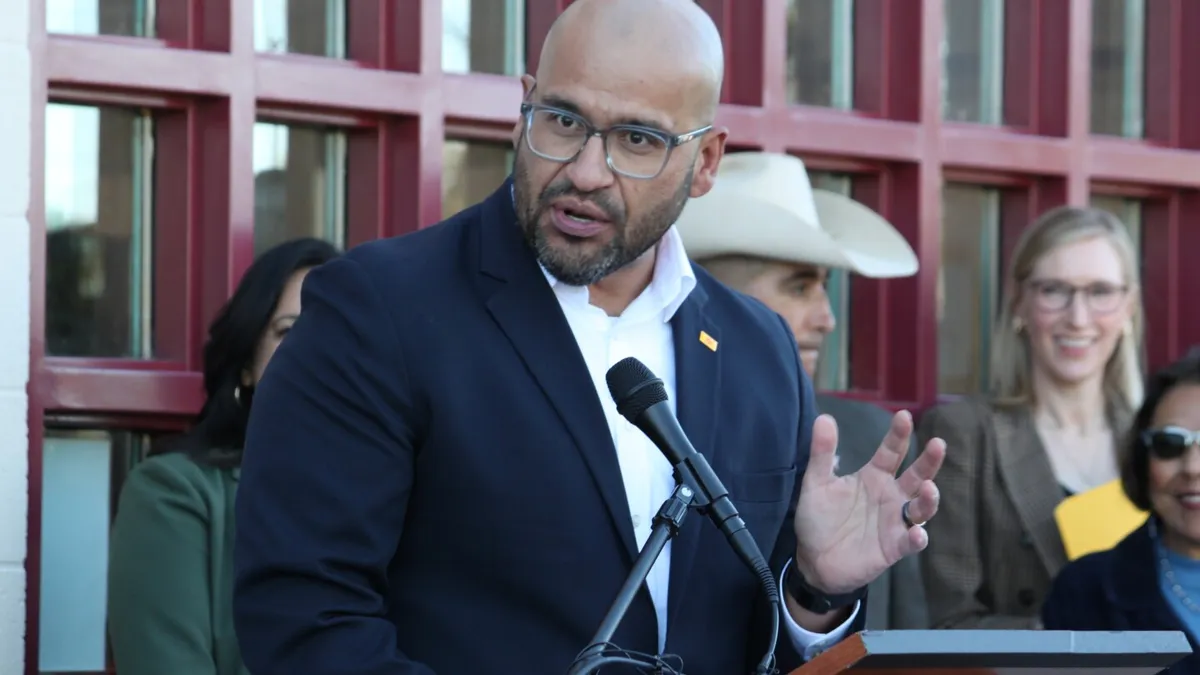
BOSTON (AP) — In a significant legal development, a federal judge in Boston has contested the Trump administration’s assertion that Supplemental Nutrition Assistance Program (SNAP) benefits could be suspended for the first time in the program's history due to the ongoing government shutdown. During a hearing on Thursday regarding a request from 25 Democratic-led states aimed at maintaining funding for SNAP, U.S. District Judge Indira Talwani emphasized that if the government is unable to financially support the program, there are established procedures to follow instead of simply halting all benefits.
Judge Talwani, who was nominated to the court by former President Barack Obama, remarked, “The steps involve finding an equitable way of reducing benefits.” This statement came just two days before the U.S. Department of Agriculture (USDA) is set to freeze payments to the SNAP program, citing an inability to continue funding amidst the shutdown. SNAP is a vital component of the nation’s social safety net, serving approximately 1 in 8 Americans.
The announcement in October that SNAP would be a casualty of the shutdown beginning on November 1 led to urgent responses from states, food banks, and SNAP recipients who scrambled to ensure access to food. Some states have indicated plans to use their own funds to sustain versions of the program. With a cost of around $8 billion per month, the implications of a funding freeze are staggering.
The administration contends that it cannot utilize a contingency fund containing roughly $5 billion for SNAP, which contradicts a prior USDA plan suggesting that these funds would be allocated to maintain SNAP operations. The Democratic attorneys general or governors from the 25 states, along with the District of Columbia, have challenged this stance, arguing that not only can that fund be used, but it is also necessary to do so. They have also highlighted the availability of an additional fund with approximately $23 billion that could be tapped for this purpose.
The lawsuit filed by the states contends that discontinuing SNAP funding would be illegal, arbitrary, and capricious, leading to irreparable harm. The plaintiffs assert that cutting off benefits would result in a “deterioration of public health and well-being” among recipients, costs that would ultimately fall on the states. They highlighted the potential impact on the nutritional needs of millions of school-aged children, stating, “Hungry children have a harder time paying attention, behaving, and learning in school.” This, they argue, would compel states to allocate additional resources for healthcare and education to address the resulting challenges.
Moreover, the lawsuit points out that over 100,000 merchants in these states depend on SNAP recipients for their livelihoods. With the Thanksgiving holiday approaching, many retailers are expected to have increased their food inventory to meet holiday demand. The plaintiffs warned that without SNAP funds, recipients would be unable to shop at these retailers, leading to a significant loss in revenue, increased food waste, and adverse effects on state economies.
In defense of the administration, lawyers argued that the plaintiffs are demanding full dispersal of SNAP benefits, which they claim would violate the Antideficiency Act, a law prohibiting the government from making financial obligations without an appropriation. They contended that even if the USDA had discretion to reallocate funds, decisions regarding the distribution of limited resources among various crucial safety-net programs should be made by the agency, not by the court.
The government further claimed that there is insufficient available funding to cover SNAP for November, warning that a court ruling could inadvertently force the USDA to divert funds from child nutrition programs, creating “calamitous concerns.” They emphasized that there is no option to fully fund SNAP without the necessary appropriations.
As the situation unfolds, it remains uncertain how quickly the debit cards used by beneficiaries to purchase groceries could be reloaded following any ruling. This process typically takes one to two weeks. For families seeking to qualify for SNAP in 2025, a family of four must have a net income that does not exceed the federal poverty line, approximately $31,000 annually. Last year, SNAP provided essential assistance to 41 million people, with nearly two-thirds being families with children, underscoring the program's critical role in supporting vulnerable populations.
As this legal battle continues, the implications for millions of Americans who rely on SNAP benefits remain profound, highlighting the ongoing challenges within the nation’s social safety net during times of governmental uncertainty.